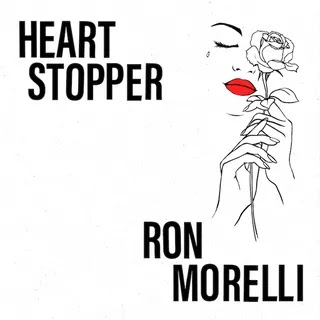Each Sunday, Pitchfork takes an in-depth look at a significant album from the past, and any record not in our archives is eligible. Today, we revisit the quintessential release from the Detroit producer, a 2000 mix of house and techno that forms a capacious document of the sounds of his city.
Kenny Dixon Jr. started his career modestly; to hear him tell it, he made his first ever single as Moodymann at a Guitar Center. “I went in… quietly testing out something, so they thought,” he revealed in a sprawling 2010 interview at London’s Red Bull Music Academy. “I had my cassette and I was in there making a track. I spent about an hour on it and put that motherfucker out about six months later.” As the somewhat theatrical interview progressed, and he slowly talked about how he was going to give the audience the whole truth, a woman stood behind him and combed his hair.
Though some of his declarations seemed like jokes, his sense of what he provided as a DJ was completely honest: “I am not going to play the hottest tracks in the world. But what I will do is give you the truth on them turntables. Whenever I’m playing up there at a particular moment, I might be at home in Detroit at my motherfucking Impala playing the same mad shit.” Running through these anecdotes and mission statements is the sense that the quotidian can be a portal to the majestic–the beginning of a legendary musician’s career can be where teenagers test out riffs on electric guitars, and the most transcendent night of music you will ever hear can be streaming out of some dude’s Chevy.
Released in 2000, Forevernevermore feels like Moodymann’s attempt to put the listener in the backseat of that Impala. The album is made up of a series of tracks that he had put out on white labels—unmarked vinyl releases that DJs make to promote their music—in the preceding years that were edited and expanded to form a capacious document of the interior and exterior sounds of his home city. For Moodymann, there’s no place like Detroit and its music, where growing up the radio stations were unsegregated; “Hell, I thought Kraftwerk was four niggas,” he joked to RBMA. To a certain extent, this was also what Kraftwerk were going for: In an interview for Dan Sicko’s book Techno Rebels, a history of Detroit techno, Kraftwerk percussionist Karl Bartos said soul music, Motown, and James Brown were some of the group’s core influences. Later in the book, Sicko argues that “even the most ‘hard core’ and militant-sounding techno groups”—like Detroit’s defiantly anti-corporate and pro-Black Underground Resistance techno collective—had “lofty ideals at heart—scenarios where race is no longer an issue.”
Before releasing Forevernevermore, Moodymann had approached race through direct statements on his EP covers and subtle references in his music. His 1996 EP, Don’t Be Misled, took its name from the Super Fly soundtrack sample on the first track, wherein Curtis Mayfield sings in anger and pain about Black people’s inability to protect each other, while exhorting the listener to think of the fate of the titular Fred, a drug dealer who gets dispatched in the film. “The City: A place where most suburban kids think they’re from. Detroit: A place where neggahs roam, neggahs like me... don’t be misled!” the EP’s cover stated. This salvo at middle-class tourists who either toured Detroit or watched it from afar on television screens expressed a visceral disdain towards these people, while simultaneously embracing the freedom of civic neglect.
More damning was the cover of his 1997 Amerika EP: “It’s been proven in history no matter what I do or what I become I’ll always be J.A.N. in this country–AMERIKA (This planet’s greatest thief) SIGNED Just Anotha Nigga.” Amerika contained two interpretations of a Gil Scott-Heron track where he traces the lineage of the blues to the United States, because the blues can only exist in a country that makes itself and the world so wretched. In both cases, the music was never as angry as the statements themselves; Moodymann simply said what he thought needed to be said.
Forevernevermore splits the difference between hinting at past oppression and urging for a different future through its enveloping sound, taking in everything from stadium rock to gospel. You can detect the influence of Underground Resistance and Kraftwerk on “The Setup,” a slice of fairly menacing techno. Its gnawing pads devour the space of the song, leaving room only for paralyzing metronomic percussion. “The Setup” is interrupted with a snipped bit of dialogue—a pronounced threat from the blaxploitation film, The Mack. The transition feels like talking to an overexcited friend who tells you that they need to pause the song they just began to show you because they have another cool thing to let you in on. This and the following song, “[Logo],” form the techno section of the album. “[Logo]” is ambient washes of synth and glitchy notes played quick, all surrounded by unrelenting drumming. It’s the aquatic type of techno that the Detroit duo Drexciya was known for, but this isn’t the music of the future; towards the end of the track, Moodymann integrates Curtis Mayfield samples and the sound of children screaming, positioning the work in the current day.
The throughline of Forevernevermore is about making do with what one has in the present moment. While Moodymann has said his upbringing was mainly around Black people, whites would appear from time to time, and their presence generally meant that something was going to go wrong: “I’m not saying everybody in Detroit is racist or nothing like that, but the only time I saw white folks, you come to cut my gas off, you come and take my father to jail,” he said in the RBMA interview. It was a quotidian formulation: white proximity would lead to Black subjection. The grim fact of this history is made clear from the opener, “Meanwhile Back at Home.” The track is a floor-filler that gets its African drums from Quincy Jones’ soundtrack to Roots—in particular, the theme played when the Africans who will soon be sold into slavery are first seen in their bucolic village. Yet this song flows into the fluttering “Wednesday Night People,” which functions as a rejection of the negativity associated with meditating on the past. The track is a weightless house groove that has the words “I keep on” as a mantra, which repeat the whole time through. It’s fairly short, but its elements—a slowed down moan, a drooping bass, the slight singing of birds—are bright and expressive enough to comprise a heavenly infinity.
This pragmatic hope is what gives the album its particular presence. Moodymann has bluntly stated that Detroit is a city where the options can seem limited, yet his stated philosophy has prioritized self-reliance as a response to structural circumstances: “I don’t care if you are out here selling dope, do it well,” he told British DJ Gilles Peterson in a 2007 interview. “I don’t care if you are out here selling pussy, fuck it well. It’s not what you do, it’s how you do it.” These lessons came to Moodymann through the Black church, and the power of the music of the Black church is foundational to Forevernevermore’s magnum opus, “The Thief That Stole My Sad Days (Ya Blessin Me).” Built around a fiery sermon focused on slavery (the preacher screams about “400 years” of bondage) and a simply undeniable piano loop, the song is house at its most spiritual. Throughout, the musician Debbie Welch sings to a God that makes everything OK. Her vocals are hypnotic and plaintive all at once, earning every single iota of emotion she strains out of her hums and screams. After she illustrates how she has been helped by Jesus, a house beat comes in, propelling her up as she exalts him: “You pick me up/And ya rocking me.” Improvised organ played by Moodymann’s collaborator Amp Fiddler moves all of this closer to a celestial level, making Welch sail upwards. What else can follow this but praise?
On “Tribute,” Moodymann pays homage to Marvin Gaye by cutting together different bits and slices of the soul singer’s tracks, presenting them with ethereal pads and thumping, ecstatic percussion. “Tribute” gets at two pillars of Moodymann’s universe: family and music. Its entire premise is based on witnessing the departure of a great musician, and realizing that there’s not much one can do but listen to the records they left behind. The track originally appeared on 1994’s The Day We Lost the Soul EP, where it was titled “Tribute! (To the Soul We Lost),” and followed an eponymous introductory track made up of radio clips from the day Gaye died. According to Moodymann, even getting these clips was a family endeavor; when Gaye died, he and his aunt recorded the entire day’s worth of tributes on Detroit radio. It was mourning through conservation.
The 1994 version was constructed around a sample of “What’s Going On.” It’s more of an edit than anything else, consisting of Gaye’s instrumentation (altered to sound as spacey as ESG) and vocals. The sample lies just under the mix, swathed in glowing chords and shakers. The album version is slightly different—it’s shorter, ending with a recording of what could only be a family get-together. After what sounds like a relative playing on the piano fades out, you hear a child sing a song that they came up with themselves. You hear his community’s presence, one that keeps Forevernevermore from sounding like an ethereal collage, close to something like the KLF’s ambient pastoral masterpiece Chill Out. Though comfortable in abstraction, he never stays there, deeply connecting his work to Motown soul, disco, jazz, and gospel.
For Moodymann these records aren’t just music—they’re guideposts, signals that can’t be ignored. There’s a video of Moodymann playing the first Movement Festival in Detroit, where he begins by playing Gil Scott-Heron’s “We Almost Lost Detroit,” rewinds it, reminds the crowd where he’s from (“Everybody up here driving through Detroit. I drive in it, you understand? Every day”), and then plays the record again, letting Gil Scott-Heron’s rasp tell the rest of the story. He seems completely comfortable here, happy to let the music play, singing along to the chorus from time to time. The song, of course, is about the threat of nuclear annihilation, about the threat of extinction, about the threat of purposeful extinction. But this doesn’t frighten Moodyman: “If it wasn’t for Detroit, I wouldn’t be the motherfucker I am today. So I’m not leaving my baby. I’m going to stick with it,” he said in the RBMA interview. “If that motherfucker fall down to the ground, well, y’all pray for me because I’ma fall with that motherfucker, you understand?”
Moodymann’s pride in his local scene comes from a time before globalization and from a place that was robbed by it. But this theft and isolation are what makes the city itself so special. Somehow a musical utopia arose out of decades of gradual deindustrialization, and this only came about with the perseverance of those who stayed. Moodymann occupies his own distinct place in Detroit. Where other DJs like Theo Parrish release music that sounds raw, Moodymann will release music that feels like a work in progress; the same record might sound different depending on what country it was purchased in. These calculated errors form the mystique that surrounds him, and they also speak to a DIY sense of entrepreneurship. If people are interested in buying something that’s real, then they need to take the good with the bad; nothing can be left out, including mistakes.
The rattling immediacy of Forevernevermore comes from its rejection of any totalizing reading. The three-part title track is a case in point: Concluding the album, it begins with six minutes of a turned-up disco groove, floating in and out of the mix are snatches of crowd noise, a horn solo, and dialogue. The effects are very similar to the party sounds that open and close “What’s Going On.” Yet unlike the samples found there, which served as an elegiac counterpoint to Gaye’s expression of political turmoil, they function as joyful noise–very pleasant shit to hear along with the Brazilian pianist and disco producer Eumir Deodato’s “Whistle Bump.” The next part is abstract industrial with Moodymann mumbling to himself, entertaining himself by repeating phrases that jokingly hint at irritation with the way he’s perceived by others (“Niggas be talking all that shit about me/Why you always going overseas?/Why you always driving around the D?”).
Finally, the song moves to a conclusion with the glimmering techno we only got a glimpse of earlier. Yet the pounding drums and buzzing notes that make up this interlude disappear almost as soon as they accumulate, leaving us with the reverbed voice of a child telling us the record’s over. It feels like just some guy fucking around in his living room, playing snatches of different records, wondering what he’s going to do before his kid comes home. Ignoring the fact that this is his stated purpose, this is really what he knows how to provide, and what he perfects on Forevernevermore. Every irritation, every joy, every mistake, and every combo that just somehow worked comes together to form a piece that feels seamless.
That’s the wonderful illusion of Forevernevermore—it asks the questions Gil Scott-Heron asked, only to rumble your speakers; it makes Chic sound even better, and then it hits you with the gospel. It’s a compendium of Black thought, doubling as one dude’s very long stand-up routine. At the end of the RBMA interview, Moodymann was asked what the most rewarding place he’d ever been was. His response? “Man, the east side of Detroit is incredible. I hit it every weekend, you’ve gotta go. Southwest is all cool, we got our Spaniards down there they be teaching me all kind of shit. West side is my roam, that is some bad motherfucker, we got some kings over there.” This record shows he was speaking the truth.



%20Music%20Album%20Reviews.webp)












0 comments:
Post a Comment